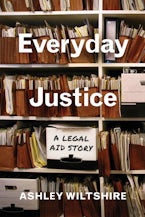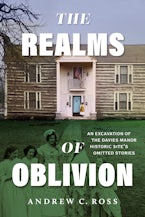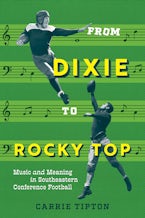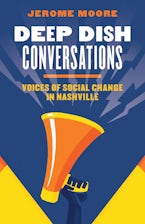- Home
- Everyday Justice

Everyday Justice
A Legal Aid Story
The Legal Aid Society’s mission is to advance, defend, and enforce the legal rights of low-income and otherwise vulnerable people in order to secure for them the basic necessities of life. Everyday Justice is an on-the-ground history of the Legal Aid Society of Middle Tennessee and the Cumberlands, the story of how national debates about access to justice have impacted the work of its lawyers, and a warning about why the federally imposed limits on that work must be lifted in order to fulfill the pledge of justice for all.
Those surviving on low incomes often see the legal system as an oppressive force stacked against them. Everyday Justice is about lawyers trying to make the law work for these people. This book traces the development and evolution of legal aid in Middle Tennessee from the late 1960s to the turn of the millennium, as told by Ashley Wiltshire, who worked for the Legal Aid Society of Middle Tennessee and the Cumberlands in all its incarnations for four decades, beginning a year after its inception.
Set in the context of the legal aid movement in the United States—beginning as a part of the social awakening in the post–Civil War era, continuing with volunteer efforts in the first part of the twentieth century, and coming to fruition beginning with the OEO Office of Legal Services grants of the 1960s as part of the War on Poverty—Everyday Justice is a story of Nashville, which levied an extended period of opposition because of prevailing cultural and religious views on race and poverty.
Those surviving on low incomes often see the legal system as an oppressive force stacked against them. Everyday Justice is about lawyers trying to make the law work for these people. This book traces the development and evolution of legal aid in Middle Tennessee from the late 1960s to the turn of the millennium, as told by Ashley Wiltshire, who worked for the Legal Aid Society of Middle Tennessee and the Cumberlands in all its incarnations for four decades, beginning a year after its inception.
Set in the context of the legal aid movement in the United States—beginning as a part of the social awakening in the post–Civil War era, continuing with volunteer efforts in the first part of the twentieth century, and coming to fruition beginning with the OEO Office of Legal Services grants of the 1960s as part of the War on Poverty—Everyday Justice is a story of Nashville, which levied an extended period of opposition because of prevailing cultural and religious views on race and poverty.
Introduction
1. Early Legal Aid, National and Nashville: 1863–1965
2. Establishing Legal Services of Nashville: 1965–1969
3. Conflicts Inside and Out: 1969–1973
4. Wide-Ranging Advocacy: 1973–1976
5. We Grow: 1976–1980
6. Nasty, Brutish, and Long
7. Mostly Drake
8. Women Lawyers Challenge Domestic Violence
9. Family Dramas
10. Young Lawyers Change Juvenile Law
11. Bless This House
12. Caveat Emptor
13. Five Women Reform Industrial Insurance
14. Hospitals, Banks, Automobile Dealers, and the United Way
15. Doomsday: 1981–1991
16. It’s an Ill Wind That Blows No Good
17. Healthcare and Paying for It
18. Social Security Disability
19. Justice Is Everybody’s Business
20. High Hopes, Doomsday II, and Then Consolidation: 1992–2002
21. A Unique Practice of Law
Epilogue
Acknowledgments
Abbreviations
Notes
Bibliography
Index
1. Early Legal Aid, National and Nashville: 1863–1965
2. Establishing Legal Services of Nashville: 1965–1969
3. Conflicts Inside and Out: 1969–1973
4. Wide-Ranging Advocacy: 1973–1976
5. We Grow: 1976–1980
6. Nasty, Brutish, and Long
7. Mostly Drake
8. Women Lawyers Challenge Domestic Violence
9. Family Dramas
10. Young Lawyers Change Juvenile Law
11. Bless This House
12. Caveat Emptor
13. Five Women Reform Industrial Insurance
14. Hospitals, Banks, Automobile Dealers, and the United Way
15. Doomsday: 1981–1991
16. It’s an Ill Wind That Blows No Good
17. Healthcare and Paying for It
18. Social Security Disability
19. Justice Is Everybody’s Business
20. High Hopes, Doomsday II, and Then Consolidation: 1992–2002
21. A Unique Practice of Law
Epilogue
Acknowledgments
Abbreviations
Notes
Bibliography
Index
Ashley Wiltshire is a retired lawyer who spent thirty-seven years with the Legal Aid Society of Middle Tennessee and the Cumberlands.
"Everyone who cares about the current state of inequality in America should read this book. It sets out, step by step, how the civil justice system can be a source of either salvation or doom, depending on whether a person has the legal help she needs to protect her children, home, and livelihood."
—Martha Bergmark, founding executive director, Voices for Civil Justice ~Martha Bergmark, founding executive director, Voices for Civil Justice
"Everyday Justice highlights the personal stories of many different advocates, having many different backgrounds, with many different motivations, who, through hard work on real problems, made a real difference—and of a leader who masterfully coordinated their efforts."
—Steve Gottlieb, executive director, Atlanta Legal Aid Society ~Steve Gottlieb, executive director, Atlanta Legal Aid Society
"Everyday Justice captures the spirit and mobilization of the equal justice movement by highlighting the living history of Legal Services in Tennessee. Wiltshire unfolds the moving story of how movement attorneys and their courageous clients overcame enduring economic, political, and racial barriers in their pursuit of justice. A riveting account, this book will inspire the new generations of social justice activists."
—Hedy Weinberg, former executive director, ACLU of Tennessee ~Hedy Weinberg, former executive director, ACLU of Tennessee
"Everyday Justice is our most complete history of a modern legal services program. It tells how a group of idealistic lawyers and their supporters created a first-rate law firm serving the poor in Middle Tennessee. A must-read for those wanting to know what it was like to be a legal aid lawyer in a turbulent era."
—Philip L. Merkel, emeritus professor of law, Western State College of Law, and former managing attorney, Georgia Legal Services Programs, Savannah Regional Office ~Philip L. Merkel, emeritus professor of law, Western State College of Law, and former managing attorney, Georgia Legal Services Programs, Savannah Regional Office
"This book represents an important case study for how a local community's institutional responses to civil justice issues have evolved. It also sheds light on the human stories behind several major legal and policy developments affecting low-income people in Tennessee in the last quarter of the twentieth century."
—Spring Miller, assistant dean and Martha Craig Daughtrey Director for Public Interest, Vanderbilt Law School ~Spring Miller, assistant dean and Martha Craig Daughtrey Director for Public Interest, Vanderbilt Law School
The man in the back of the room stood up and pointed at me, “There he is, boys. I told you this would happen, and there he is . . .”
I had just finished my presentation to the Sumner County Bar Association in its meeting at the Gallatin Country Club, talking about our plan at Legal Services of Nashville to open a legal aid office in their town to serve low-income people in three suburban/rural counties. The man pointing his finger at me, I learned later, was the circuit court judge for that area. Like many lawyers in our state, he was convinced that Legal Services lawyers were a danger to society and to the legal profession. Twelve years earlier, two leaders of the Tennessee Bar Association had written in the association’s quarterly journal that Legal Services was a part of “a headlong plunge into socialism.” The title of their impassioned article was “Et tu, Brute!”
In 1974, three years before my fateful trip to the country club, a committee appointed by the Nashville Bar Association, after a year-long investigation, found that three of us had committed “unprofessional conduct of the worst sort” by representing people with developmental disabilities against the state, which had been warehousing them without recourse in deplorable conditions. The committee recommended that the bar association board reprimand us for our actions and insisted that the board of our organization should “assure that this sort of thing is discontinued.”
As we will see during the progress of our story, each of these venomous confrontations eventually had a positive outcome, emblematic of some of the profound changes that will occur in the bar, as well as in the law and in society, over the course of our time. This is a story about the struggle to establish civil legal aid in one place in the American South, about the early instability of Legal Services of Nashville, and about its evolution into an effective and broadly supported organization that has provided representation to vulnerable people who were, and often still are, disadvantaged by their lack of access to all parts of our legal system. It is a story about the wide variety of civil legal cases we handled for our clients and some of the improvements we were able to obtain through those cases.
The opposition and the backlash that we encountered was not and should not be surprising. Many of our cases challenged societal status quo, racial prejudice, bureaucratic lethargy, and business as usual. They disclosed injustices and called for radical changes. They required thoughtful remedies from courageous judges, responsive legislators, and diligent administrators. And thankfully there is no lack of heroes throughout the story in all three branches of government, judges and other public officials who responded effectively to the plight of our clients.
I had just finished my presentation to the Sumner County Bar Association in its meeting at the Gallatin Country Club, talking about our plan at Legal Services of Nashville to open a legal aid office in their town to serve low-income people in three suburban/rural counties. The man pointing his finger at me, I learned later, was the circuit court judge for that area. Like many lawyers in our state, he was convinced that Legal Services lawyers were a danger to society and to the legal profession. Twelve years earlier, two leaders of the Tennessee Bar Association had written in the association’s quarterly journal that Legal Services was a part of “a headlong plunge into socialism.” The title of their impassioned article was “Et tu, Brute!”
In 1974, three years before my fateful trip to the country club, a committee appointed by the Nashville Bar Association, after a year-long investigation, found that three of us had committed “unprofessional conduct of the worst sort” by representing people with developmental disabilities against the state, which had been warehousing them without recourse in deplorable conditions. The committee recommended that the bar association board reprimand us for our actions and insisted that the board of our organization should “assure that this sort of thing is discontinued.”
As we will see during the progress of our story, each of these venomous confrontations eventually had a positive outcome, emblematic of some of the profound changes that will occur in the bar, as well as in the law and in society, over the course of our time. This is a story about the struggle to establish civil legal aid in one place in the American South, about the early instability of Legal Services of Nashville, and about its evolution into an effective and broadly supported organization that has provided representation to vulnerable people who were, and often still are, disadvantaged by their lack of access to all parts of our legal system. It is a story about the wide variety of civil legal cases we handled for our clients and some of the improvements we were able to obtain through those cases.
The opposition and the backlash that we encountered was not and should not be surprising. Many of our cases challenged societal status quo, racial prejudice, bureaucratic lethargy, and business as usual. They disclosed injustices and called for radical changes. They required thoughtful remedies from courageous judges, responsive legislators, and diligent administrators. And thankfully there is no lack of heroes throughout the story in all three branches of government, judges and other public officials who responded effectively to the plight of our clients.











